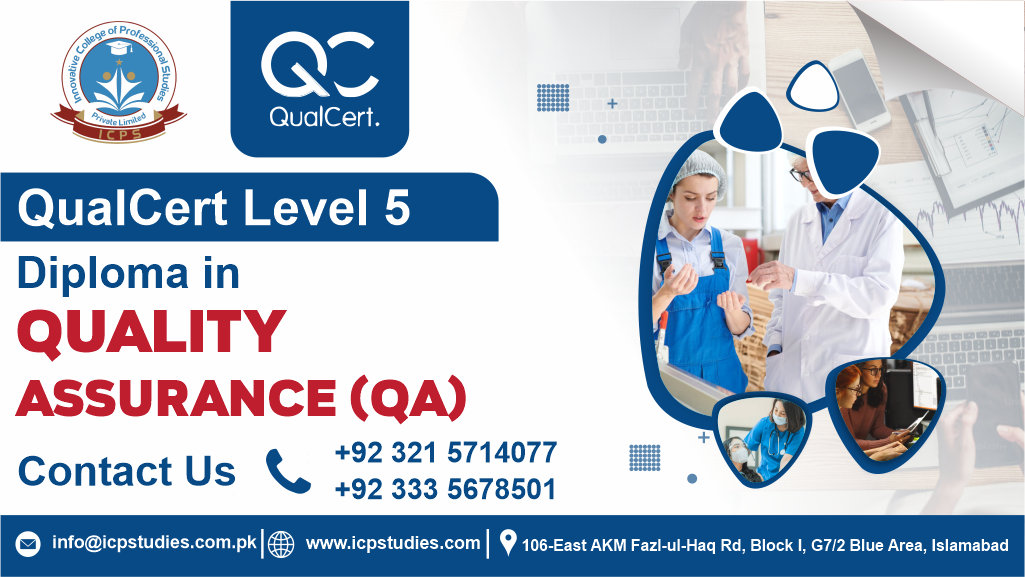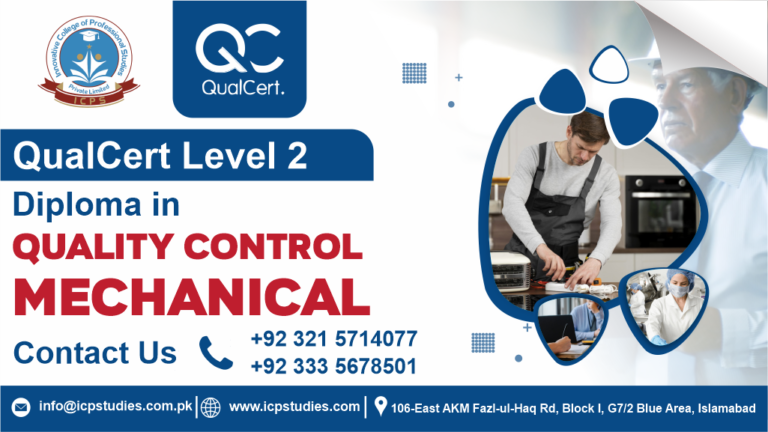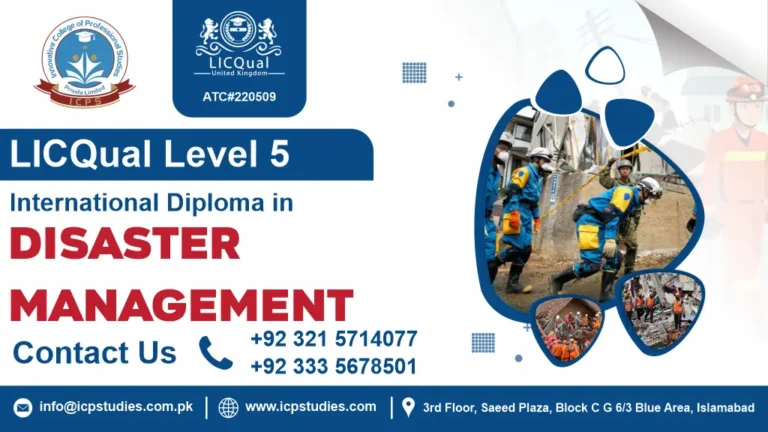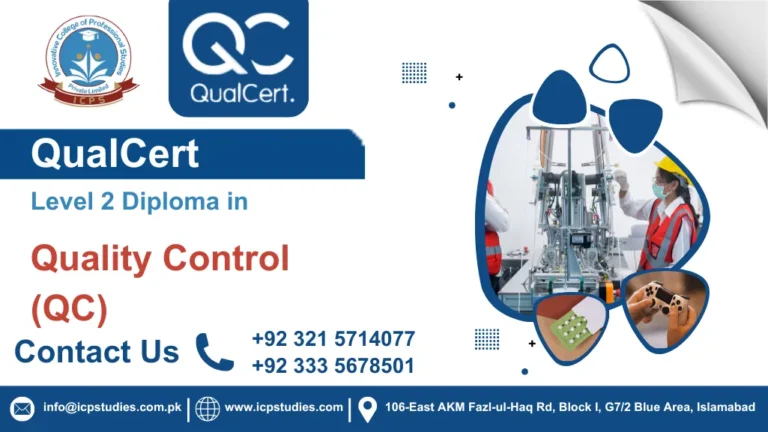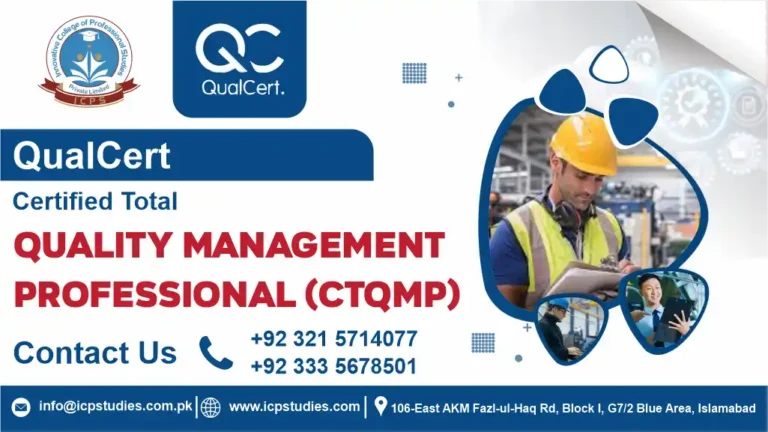The QualCert Level 5 Diploma in Quality Assurance is a globally recognized certification designed to equip professionals with the knowledge and skills required to manage and improve quality systems across various industries. This UK-based qualification is entirely assignment-based, making it flexible and accessible to learners worldwide. Whether you are looking to advance in your current role or switch to a quality-focused career, this diploma offers a comprehensive pathway to success.
The QualCert Level 5 Diploma in Quality Assurance is structured to provide in-depth knowledge of quality management principles, compliance standards, and continuous improvement techniques. It is suitable for individuals seeking to develop expertise in quality control, auditing, and regulatory compliance, enabling them to implement effective quality management systems (QMS) within their organizations.
The QualCert Level 5 Diploma in Quality Assurance is an excellent qualification for individuals looking to advance their careers in quality management. With worldwide recognition, flexible learning, and assignment-based assessments, this diploma provides the skills and knowledge needed to excel in the field of quality assurance.
All About QualCert Level 5 Diploma in Quality Assurance
Course Overview
The QualCert Level 5 Diploma in Quality Assurance is a globally recognized, UK-based certification designed for professionals seeking to build expertise in quality management, compliance, and process improvement. This assignment-based qualification offers a flexible and practical approach to learning, making it accessible to students worldwide.
The course provides a comprehensive understanding of quality assurance principles, equipping learners with the skills needed to implement effective quality management systems (QMS), conduct audits, and ensure compliance with industry standards. Whether you’re looking to advance in your current role or transition into a quality-focused career, this diploma serves as a stepping stone towards professional growth and leadership in quality assurance.
With no exams and a strong focus on real-world applications, this program is ideal for working professionals aiming to develop practical skills in quality control, risk management, and continuous improvement across various industries.
Study Units
- Fundamentals of Quality Assurance
- Quality Control Techniques
- Auditing and Inspection Techniques
- Data Analysis in Quality Assurance
- Continuous Improvement Process (CIP)
- Communication and Reporting in QA
To enroll in the Level 5 Diploma in Quality Assurance (QA), applicants must meet the following entry requirements:
- Age: Candidates must be at least 18 years old.
- Education: A high school diploma or an equivalent qualification is required. While not mandatory, higher education or relevant qualifications in quality assurance, engineering, or related fields can be advantageous.
- Experience (Optional): Prior experience in quality assurance, quality control, or a related industry is recommended but not essential.
- English Language Proficiency: As the course is conducted in English, applicants must demonstrate proficiency, either through previous education or a recognized language test.
The Level 5 Diploma in Quality Assurance (QA) is designed for professionals looking to expand their expertise in quality management and assurance. This course is ideal for:
- Quality Assurance Managers and Supervisors: Professionals overseeing quality assurance processes, ensuring compliance, and driving continuous improvement within their organizations.
- Quality Control Specialists: Individuals responsible for maintaining product and service quality who want to implement more effective quality control strategies.
- Project Managers: Those managing projects where strict quality assurance measures are required to meet industry and client standards.
- Compliance Officers: Professionals ensuring that their organizations adhere to regulatory requirements and industry standards, with a focus on quality assurance and compliance.
- Production and Operations Managers: Managers aiming to integrate quality management systems (QMS) into production and operational processes for improved efficiency and product quality.
- Engineers and Technicians: Engineering and technical professionals involved in product development and manufacturing, ensuring quality is embedded throughout the product lifecycle.
- Supply Chain and Procurement Specialists: Individuals managing supplier relationships and procurement who must ensure supplier quality and performance meet organizational and regulatory standards.
- Business Analysts and Consultants: Professionals advising organizations on quality management practices and seeking to provide data-driven recommendations for improvement.
- Health and Safety Officers: Those responsible for workplace health and safety, ensuring that quality management aligns with industry health and safety regulations.
- Professionals Seeking Career Growth: Individuals looking to advance in the field of quality management by acquiring specialized knowledge and a recognized qualification.
Learning Outcomes
- Explore the core principles and concepts of quality assurance across various industries.
- Understand the significance of quality management systems (QMS) in maintaining product and service excellence.
- Gain insights into regulatory requirements and industry standards shaping quality assurance practices.
- Identify the role of QA in achieving organizational objectives and enhancing customer satisfaction.
Quality Control Techniques
- Learn essential quality control methods, including Statistical Process Control (SPC) and sampling techniques.
- Utilize key quality control tools such as control charts, check sheets, and Pareto analysis to monitor and maintain quality standards.
- Understand the connection between quality control and quality assurance for consistent product and service quality.
- Develop skills to identify, analyze, and resolve quality issues through corrective and preventive actions (CAPA).
Auditing and Inspection Techniques
- Master the principles and processes involved in conducting internal and external quality audits.
- Gain hands-on knowledge of inspection techniques and tools for verifying compliance with quality standards.
- Learn to identify non-conformities and develop corrective action plans based on audit findings.
- Understand the role of audits in ensuring continuous improvement and regulatory compliance.
Data Analysis in Quality Assurance
- Develop proficiency in analyzing quality data using statistical methods.
- Learn to interpret data trends and patterns to drive informed decision-making.
- Understand how data-driven insights contribute to process optimization and quality improvements.
- Utilize software tools for data analysis and reporting in quality assurance processes.
Continuous Improvement Process (CIP)
- Explore methodologies like Six Sigma, Lean, and Kaizen to drive continuous improvement.
- Apply CIP techniques to enhance product quality, streamline operations, and reduce inefficiencies.
- Develop strategies to foster a culture of continuous improvement within an organization.
- Analyze the impact of improvement initiatives on business performance and customer satisfaction.
Communication and Reporting in Quality Assurance
- Enhance communication skills for effectively presenting quality assurance findings and recommendations.
- Learn to create clear, structured reports on quality metrics, audit results, and improvement plans.
- Develop presentation skills for engaging senior management and stakeholders in QA strategies.
- Understand the importance of transparent communication in driving quality excellence within an organization.
FAQs QualCert Level 5 Diploma in Quality Assurance

